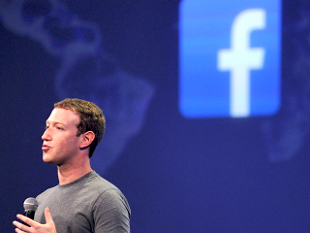Nov 27: The social media giant says it is trying to provide an affordable internet service in the rural parts of the country.

On Facebook"s Internet.org page, it says “With Express Wifi, we"re working with carriers, internet service providers, and local entrepreneurs to help expand connectivity to underserved locations around the world. We"re currently live in India, and are expanding to other regions soon.” Express Wi-Fi will empower local entrepreneurs to help provide quality internet access, it further said.
“When people are able to purchase fast, affordable and reliable internet, they"re able to explore the range of information it has to offer including news, education, health, job postings, entertainment, and communication tools like Facebook,” it added.
A Facebook spokesperson confirmed with PTI that the company is currently working with internet service providers to test Express Wi-Fi with deployments in multiple pilot sites. On Express Wi-Fi network, users can purchase fast, reliable and affordable data packs via digital vouchers to access the Internet, the spokesperson added.
While Free Basics, initially called Internet.org, had claimed it was allowing the free access to the Internet for the poor in India, it was limited to a few Internet services, which included Facebook. In February this year, Telecom Regulatory Authority of India had said service providers cannot enter into any arrangement, agreement or contract that promotes discriminatory pricing of data services, adding that any telecom company found flouting the rule will be fined Rs 50,000 a day. Facebook Founder and CEO Mark Zuckerberg had expressed his disappointment with the regulation.





Comments
Add new comment